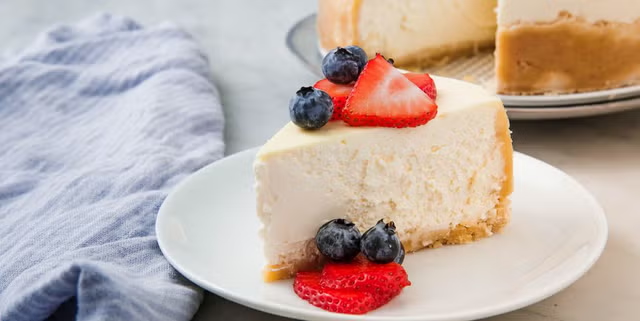Introduction to the Sweet Dilemma
We all love sweets—cakes, chocolates, candies—whatever your go-to dessert is, it probably involves a ton of sugar. But what if you’re trying to cut back? You might be thinking, “Sugar-free? Ew, no thanks.” Well, hold that thought. Sugar-free sweets have come a long way, and yes, some of them actually taste amazing.
Why Sugar-Free?
Going sugar-free doesn’t mean you’re on a health kick for no reason. Whether it’s to manage diabetes, lose weight, or simply ditch the sugar crashes, more people are swapping refined sugar for smarter alternatives.
The Myth About Bad-Tasting Sugar-Free Sweets
There was a time when sugar-free sweets tasted like cardboard or had that weird, bitter aftertaste. But now? Brands and bakers are blending science with flavor to make guilt-free goodies that don’t compromise on taste.
What Makes a Sugar-Free Sweet “Taste Good”?
Flavor Profile Balance
The key? Balance. A sweet shouldn’t just be, well, sweet. It should have depth—chocolatey richness, fruity brightness, or creamy notes.
Texture and Mouthfeel
Let’s be honest—taste matters, but so does texture. The snap of a cookie, the chew of a gummy, or the melt-in-your-mouth vibe of fudge? Absolutely essential.
Natural vs Artificial Sweeteners
Natural sweeteners like stevia, monk fruit, and erythritol tend to have cleaner, more pleasant flavors compared to some artificial options that leave an odd aftertaste.
Common Sugar Substitutes
Let’s meet the sugar-free stars of the show.
Stevia
Derived from the stevia plant, it’s way sweeter than sugar, so a little goes a long way. Bonus: zero calories.
Erythritol
A sugar alcohol that tastes like sugar but has nearly zero calories and doesn’t spike blood sugar levels.
Monk Fruit
Sweet, natural, and with no calories. It’s becoming a favorite in keto and diabetic-friendly recipes.
Xylitol
Tastes very similar to sugar and is great in baked goods. Just keep it away from pets—especially dogs.
Allulose
This rare sugar behaves like real sugar in baking but has a fraction of the calories and minimal impact on blood glucose.
Top Sugar-Free Sweets That Actually Taste Good
Let’s dig into the best sugar-free options that will leave your sweet tooth smiling.
Sugar-Free Chocolates That Melt in Your Mouth
Brands like Lily’s or ChocZero use erythritol and stevia blends to craft creamy, dreamy chocolate bars and chips.
Gummy Candies Without the Guilt
SmartSweets and Kiss My Keto offer gummy bears and peach rings with fiber-packed formulas and real flavor.
Lollipops That Satisfy
Zollipops and Dr. John’s are kid-friendly (and adult-approved) with xylitol and natural fruit flavors.
Cookies You Won’t Believe Are Sugar-Free
Think gooey chocolate chip cookies made with almond flour and monk fruit—perfect for late-night cravings.
Cakes and Muffins That Hit the Spot
You can find sugar-free mixes or recipes using coconut flour, erythritol, and eggs for soft, moist muffins or rich cakes.
Homemade Sugar-Free Sweet Treats
Want to DIY your sugar-free indulgence? Try these favorites.
Easy Sugar-Free Chocolate Fudge
Mix coconut oil, cocoa powder, stevia, and nut butter. Chill and enjoy—no baking required.
No-Bake Peanut Butter Cookies
Oats, natural peanut butter, vanilla, and monk fruit make chewy, rich cookies in minutes.
Keto Cheesecake Bites
Cream cheese, almond flour crust, and erythritol. These bites are mini, creamy bombs of flavor.
Sugar-Free Berry Sorbet
Blend frozen berries, lemon juice, and a splash of stevia for a refreshing, guilt-free dessert.
Tips for Choosing or Making Sugar-Free Sweets
Read the Label Smartly
Just because it’s sugar-free doesn’t mean it’s healthy. Watch out for hidden carbs and weird additives.
Know Your Sweeteners
Try a few to see what your taste buds prefer. Everyone reacts differently to stevia, erythritol, and other substitutes.
Taste-Test and Adjust Recipes
When baking, start with less sweetener—you can always add more. And remember, texture matters too.
The Health Benefits of Going Sugar-Free
Blood Sugar Control
Ditching refined sugar helps stabilize your energy levels and prevents that post-cookie crash.
Weight Management
Fewer calories and carbs can mean easier weight loss and better portion control.
Dental Health Boost
Sugar-free candies with xylitol actually help fight cavities. Win-win!
Are There Any Downsides?
Potential Digestive Issues
Some sugar alcohols like maltitol or xylitol can cause bloating or gas if over-consumed. Moderation is key.
Overeating “Guilt-Free” Sweets
Just because it’s sugar-free doesn’t mean you should eat the whole tray. Calories still count.
Conclusion
Sugar-free sweets have entered a delicious new era. With the right ingredients and a bit of trial and error, you can enjoy your favorite desserts without the sugar crash—or the guilt. Whether you’re baking at home or grabbing something from the store, remember: sugar-free doesn’t have to mean flavor-free.
FAQs
Q1: Are sugar-free sweets really healthier?
Yes, especially for those managing diabetes or trying to cut calories. But always check the ingredients and nutrition facts.
Q2: Can kids eat sugar-free treats safely?
Generally yes, but avoid artificial sweeteners for younger kids and stick to natural ones like stevia or monk fruit.
Q3: Do sugar-free candies have carbs?
Some do, especially those made with sugar alcohols. Always check the net carbs if you’re on a low-carb diet.
Q4: Are sugar-free desserts good for diabetics?
They can be! Just ensure the sweetener used doesn’t spike blood sugar.
Q5: Which sugar substitute tastes most like real sugar?
Many say allulose and erythritol are closest in flavor and texture to real sugar.
Read More Article About Food
